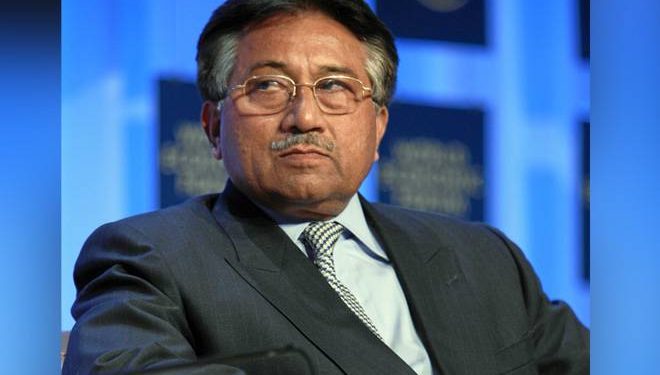Islamabad: Pakistan’s Supreme Court Wednesday upheld late former military ruler General Pervez Musharraf’s death sentence handed out to him by a special court in 2019 in the high treason case.
Musharraf, the architect of the Kargil War in 1999 and Pakistan’s last military ruler died February 5 in Dubai after a prolonged illness. The 79-year-old former president was undergoing treatment for amyloidosis in Dubai. He has been living in the UAE since 2016 in self-exile to avoid criminal charges back home.
A four-member bench headed by Chief Justice of Pakistan Qazi Faez Isa and comprising Justice Mansoor Ali Shah, Justice Aminuddin Khan, and Justice Athar Minallah conducted the hearing.
December 17, 2019, a special court handed out the death sentence to the former ruler after a case of high treason was filed against him during the Pakistan Muslim League-Nawaz (PML-N) party’s tenure for his “unconstitutional” decision to impose an emergency in November 2007.
The apex court announced the reserved verdict on an appeal filed by the former ruler against the death sentence which was handed to him and declared ineffective for non-compliance.
“Pervez Musharraf’s heirs did not follow the case even on multiple notices,” the Supreme Court remarked while rejecting the former president’s appeal.
Musharraf’s counsel, Salman Safdar, said that he tried contacting Musharraf’s family after the court decided to hear the appeal but the family never responded to him.
The court also declared Lahore High Court’s (LHC) judgment “null and void” which suspended the death sentence by the special court. The top court remarked that the LHC’s decision was against the law.
Taufeeq Asif had filed a petition against the LHC judgment.
“Musharraf filed an appeal against the sentence which is a criminal appeal,” Hamid Khan, who represented Asif, told the court.
During the hearing, Additional Attorney General Aamir Rehman said that he opposed Musharraf’s appeal.
The court, after hearing the arguments, reserved the verdict.
In the previous hearing November 29, 2023, the top court observed that all those, including the judges, who validated the martial law imposed by Musharraf October 12, 1999, should be held accountable.
Justice Athar had also remarked that the judges who validated the imposition of martial law by Musharraf in 1999 should also be tried.
The chief justice had observed that “we should learn from our history” adding that “even if someone was not punished for abrogating the Constitution, at least one should admit that what was done in the past was wrong.”
The chief justice further observed that the primary aspect was recognition of the wrongdoing and everyone should at least accept that a wrong had been done in the past.
Justice Athar had remarked that one should speak the truth and the truth was that the judges who validated the martial law should also be tried and given a fair trial.
PTI






































